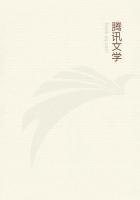As to the uncertainty of life, he remarks that "Edward VI. died in his minority, and disappointed his subjects, to whom he had promised a happy reign." Of this infant's thirty-nine sermons (just as many as the Articles), it may be said that they are in no way inferior to other examples of this class of literature. But sermons are among the least "scarce" and "rare" of human essays, and many parents would rather see their boy patiently acquiring the art of wicket-keeping at school than moralising on the uncertainty of life at home. Some one "having presented to the young author a copy of verses on the trite and familiar subject of the Ploughboy,"he replied with an ode on "The Potboy."
"Bliss is not always join'd to wealth, Nor dwells beneath the gilded roof For poverty is bliss with health, Of that my potboy stands a proof."The volume ends with this determination, "Still shall I seek Apollo's shelt'ring ray, To cheer my spirits and inspire my lay."If any parent or guardian desires any further information about Les Enfans devenus celebres par leurs ecrits, he will find it in a work of that name, published in Paris in 1688. The learned Scioppius published works at sixteen, "which deserved" (and perhaps obtained)"the admiration of dotards." M. Du Maurier asserts that, at the age of fifteen, Grotius pleaded causes at the Bar. At eleven Meursius made orations and harangues which were much admired. At fifteen, Alexandre le Jeune wrote anacreontic verses, and (less excusably) a commentary on the Institutions of Gaius. Grevin published a tragedy and two comedies at the age of thirteen, and at fifteen Louis Stella was a professor of Greek. But no one reads Grevin now, nor Stella, nor Alexandre le Jeune, and perhaps their time might have been better occupied in being "soaring human boys"than in composing tragedies and commentaries. Monsieur le Duc de Maine published, in 1678, his OEuvres d'un Auteur de Sept Ans, a royal example to be avoided by all boys. These and several score of other examples may perhaps reconcile us to the spectacle of puerile genius fading away in the existence of the common British schoolboy, who is nothing of a poet, and still less of a jurisconsult.
The British authors who understand boys best are not those who have written books exclusively about boys. There is Canon Farrar, for example, whose romances of boyish life appear to be very popular, but whose boys, somehow, are not real boys. They are too good when they are good, and when they are bad, they are not perhaps too bad (that is impossible), but they are bad in the wrong way. They are bad with a mannish and conscious vice, whereas even bad boys seem to sin less consciously and after a ferocious fashion of their own.
Of the boys in "Tom Brown" it is difficult to speak, because the Rugby boy under Arnold seems to have been of a peculiar species. Acontemporary pupil was asked, when an undergraduate, what he conceived to be the peculiar characteristic of Rugby boys. He said, after mature reflection, that "the differentia of the Rugby boy was his moral thoughtfulness." Now the characteristic of the ordinary boy is his want of what is called moral thoughtfulness.
He lives in ****** obedience to school traditions. These may compel him, at one school, to speak in a peculiar language, and to persecute and beat all boys who are slow at learning this language.
At another school he may regard dislike of the manly game of football as the sin with which "heaven heads the count of crimes."On the whole this notion seems a useful protest against the prematurely artistic beings who fill their studies with photographs of Greek fragments, vases, etchings by the newest etcher, bits of China, Oriental rugs, and very curious old brass candlesticks. The "challenge cup" soon passes away from the keeping of any house in a public school where Bunthorne is a popular and imitated character.
But when we reach aesthetic boys, we pass out of the savage stage into hobbledehoyhood. The bigger boys at public schools are often terribly "advanced," and when they are not at work or play, they are vexing themselves with the riddle of the earth, evolution, agnosticism, and all that kind of thing. Latin verses may not be what conservatives fondly deem them, and even cricket may, it is said, become too absorbing a pursuit, but either or both are better than precocious freethinking and sacrifice on the altar of the Beautiful.













